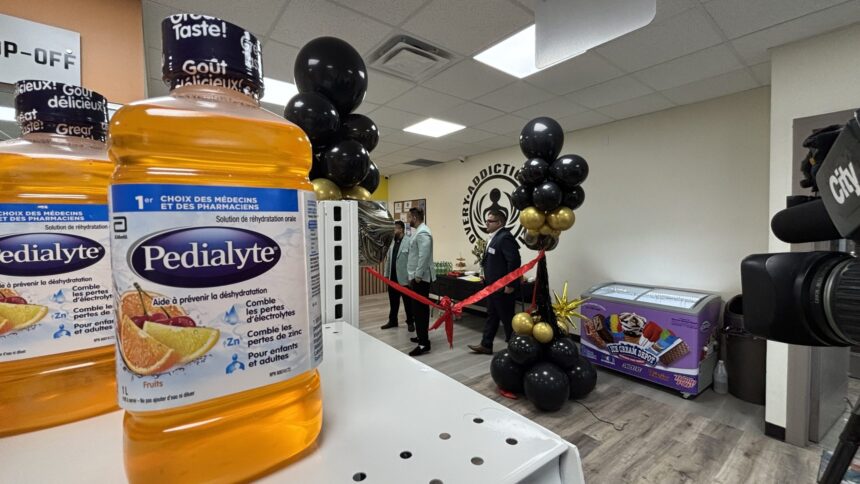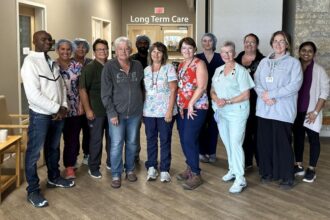In a landmark development for Alberta’s healthcare system, Edmonton is set to welcome a comprehensive dual-diagnosis treatment facility in mid-2025, addressing the critical intersection of mental health and substance use disorders that has challenged the province for decades. The $47.3 million Comprehensive Recovery Centre represents the provincial government’s most significant investment in integrated care services in the past fifteen years.
“This isn’t just another healthcare facility—it’s a fundamental reimagining of how we approach complex health challenges,” said Alberta Health Minister Adriana LaGrange at yesterday’s groundbreaking ceremony. “For too long, patients have fallen through the cracks between separate mental health and addiction treatment systems. This centre brings these services under one roof with a patient-centered approach.”
The 65,000-square-foot facility, located in Edmonton’s rapidly developing Blatchford neighborhood, will feature 75 inpatient beds, three specialized treatment wings, and a 24/7 crisis response unit. According to CO24 News, the centre will employ over 120 healthcare professionals including psychiatrists, addiction specialists, social workers, and peer support specialists with lived experience.
Dr. Verna Yiu, President of Alberta Health Services, emphasized the evidence-based model driving the facility’s design. “International research consistently shows that integrated treatment addressing both mental health and substance use simultaneously yields significantly better outcomes than separated services,” Dr. Yiu told reporters. “Our clinical team has studied successful models in British Columbia, Quebec, and internationally to develop protocols tailored to Alberta’s unique needs.”
The centre’s creation responds directly to alarming statistics from Canada News reporting a 67% increase in opioid-related deaths in Alberta since 2019, with approximately 70% of those individuals having documented concurrent mental health disorders. Provincial data indicates that patients with dual diagnoses typically encounter 3-5 times more barriers to accessing appropriate care than those with single diagnoses.
Edmonton Mayor Amarjeet Sohi praised the project as “transformative for our city’s most vulnerable residents,” while acknowledging the challenges ahead. “While this facility represents tremendous progress, we must recognize it as one component of a comprehensive approach to addressing mental health and addiction challenges across our community,” Mayor Sohi stated during the ceremony.
The facility’s funding structure reflects a collaborative approach to tackling these complex issues. The Alberta government has committed $36.7 million, with an additional $8.1 million from federal transfers under the CO24 Politics Canada-Alberta Mental Health and Addiction Services Agreement, and $2.5 million from private donors including the Royal Alexandra Hospital Foundation.
What distinguishes this centre from previous approaches is its seamless integration of traditionally separate services. Patients will undergo comprehensive assessment upon entry, receiving individualized treatment plans addressing both mental health and substance use challenges simultaneously, rather than being shuttled between disconnected programs.
“Patients have consistently told us how exhausting and defeating it feels to explain their story repeatedly to different providers who only address part of their needs,” explained Dr. Rebecca Marshall, the newly appointed clinical director. “Our integrated intake process ensures patients tell their story once, receiving coordinated care from a team that communicates effectively.”
Community advocates have largely welcomed the announcement while emphasizing ongoing needs. Jordan Rivers, Executive Director of the Edmonton Mental Health Advocacy Coalition, noted: “This facility addresses a critical gap in our continuum of care, particularly for those with complex needs who haven’t been well-served by existing systems. However, we must continue advocating for expanded community-based prevention services and supportive housing to create a truly comprehensive approach.”
Construction begins next month with completion targeted for April 2025 and full operations expected by July. As Edmonton prepares for this significant addition to its healthcare landscape, the question remains: Will this integrated approach finally bridge the gap between mental health and addiction services that has challenged healthcare systems across CO24 Business Canada for generations?

























